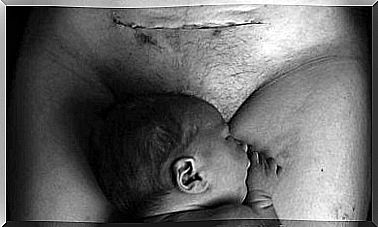The Rett Syndrome: Its Symptoms And Treatment

Among the large number of diseases and conditions that people can suffer from is a group of rare diseases. These are diseases that five or fewer per 10,000 people suffer from. One of these conditions is Rett syndrome.
The ‘hand washing syndrome’
Rett syndrome is a genetic disorder that affects the nervous system. It is sometimes referred to as ‘hand washing syndrome’. This is because people with this disease often make involuntary movements, as if they were washing their hands.
As is the case with most rare diseases, it can take a long time to get a diagnosis. Rett syndrome is easily confused with autism, developmental delay, or cerebral palsy, leading to late treatment.
Rett syndrome occurs mainly in girls and women. This is because it is caused by a gene located on the X chromosome. If it occurs in boys, it is usually fatal within a few days of birth.
Austrian doctor Andrea Rett described this disease after a study with 22 girls who made the same movements with their hands.

Symptoms of Rett Syndrome
During the first months of life, babies with Rett syndrome show no signs of this disease. After six months, developmental delays can occur and babies lose skills they have learned.
Girls with this syndrome have reduced muscle tone and a tendency not to look at you. They can be slow with their language development.
They often suffer from the symptom that Dr. Rett observed: the repeated movement that resembles washing hands. These children may also suffer from seizures and changes in their breathing, especially right after waking up.
Rett syndrome is also associated with slowed growth and limited motor skills. In babies, it can cause irritability, uncontrolled crying and excess saliva production. Babies with this disease often have unusual sleeping patterns. Their heart rhythm may also be affected.
Due to abnormalities in their nervous system, girls with Rett syndrome have difficulty chewing, swallowing and digesting food. For example, teeth grinding and involuntary movements of the tongue can occur. They may also experience abdominal pain, constipation, gallstones, and reflux.
Three out of four girls with the syndrome suffer from scoliosis or a curvature of the back. Their gait is stiff and unsteady, often on their toes. Due to the circulation problems associated with this syndrome, they quickly have cold hands that turn blue.
Treatment of Rett syndrome
Because Rett syndrome is incurable, the goal of treatment is to relieve the symptoms. It is a progressive disease that gets worse over time. However, treatment can improve the quality of life for people with this syndrome.
A multidisciplinary clinical team must perform the treatment, as the symptoms of the condition affect different systems in the body.
Disciplines that may be required include:
- neurologists
- pediatricians
- speech therapists
- physiotherapists
Treating Rett syndrome requires both medication and therapy. These target the motor problems and relieve muscle stiffness. Specialists can also help overcome communication difficulties and reduce anxiety.
Studies on the use of drugs such as L-dopa, bromocriptine and naltrexone have shown positive results. These drugs have reduced symptoms such as:
- reflux
- irritability
- the signature hand movements
- problems with breathing.
However, the effects of medication on this disease are not permanent. The complications of Rett syndrome always require medical attention throughout the patient’s life.
Additional medications such as antacids, laxatives, and medications for epilepsy and arrhythmias may be needed. So are supplements like vitamin D, calcium, and more.
Diet is also an important factor in managing Rett syndrome symptoms. Patients require a high-fat, high-calorie diet to encourage growth and weight gain.
In some cases, surgery may be necessary to correct problems caused by the scoliosis and reflux symptoms.
Prognosis of Rett Syndrome
The life expectancy of people with this disease is between 40 and 50 years. However, research into the syndrome is already underway. Work is underway to find therapies to alleviate symptoms and to develop better diagnostic methods.









